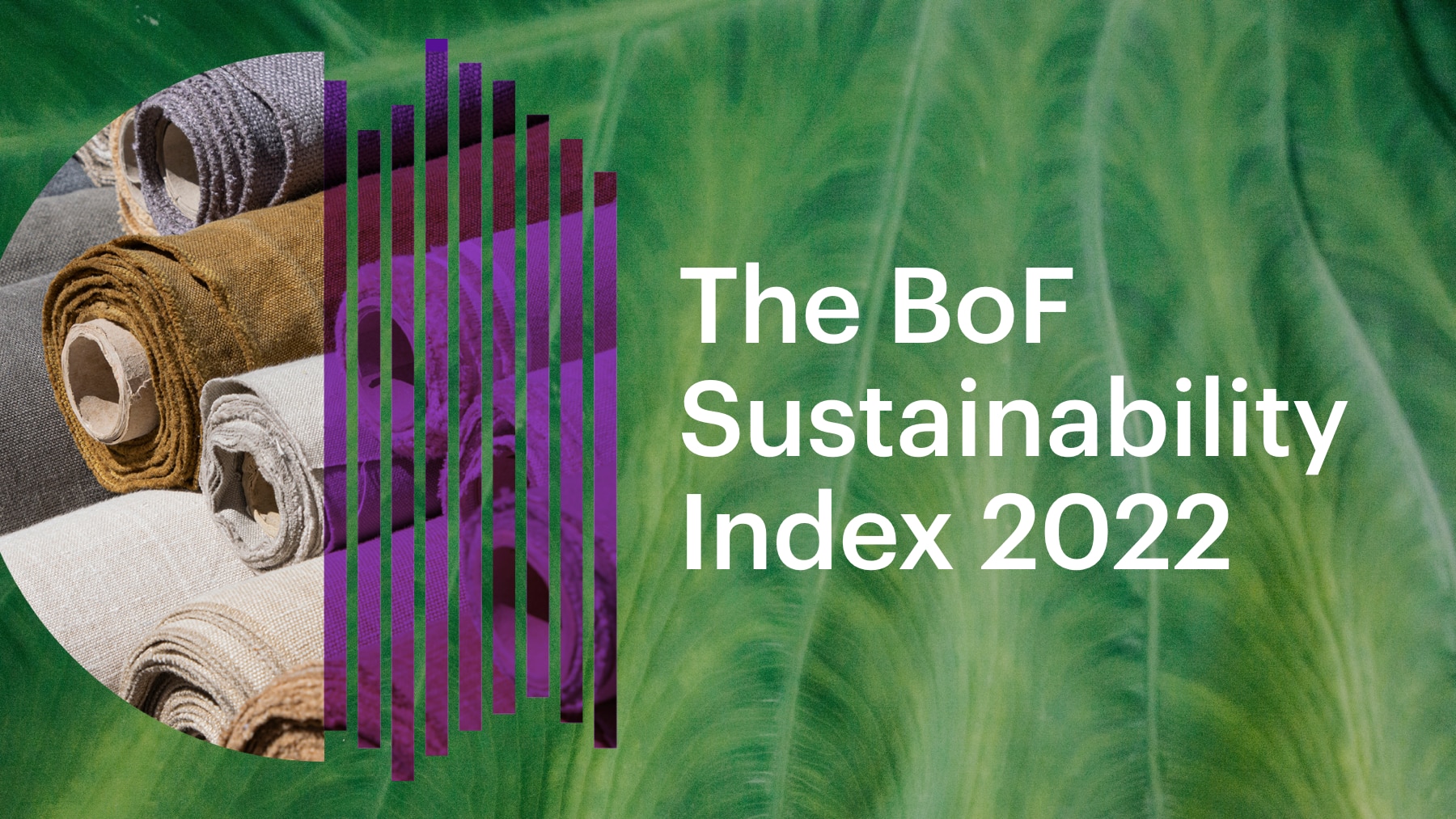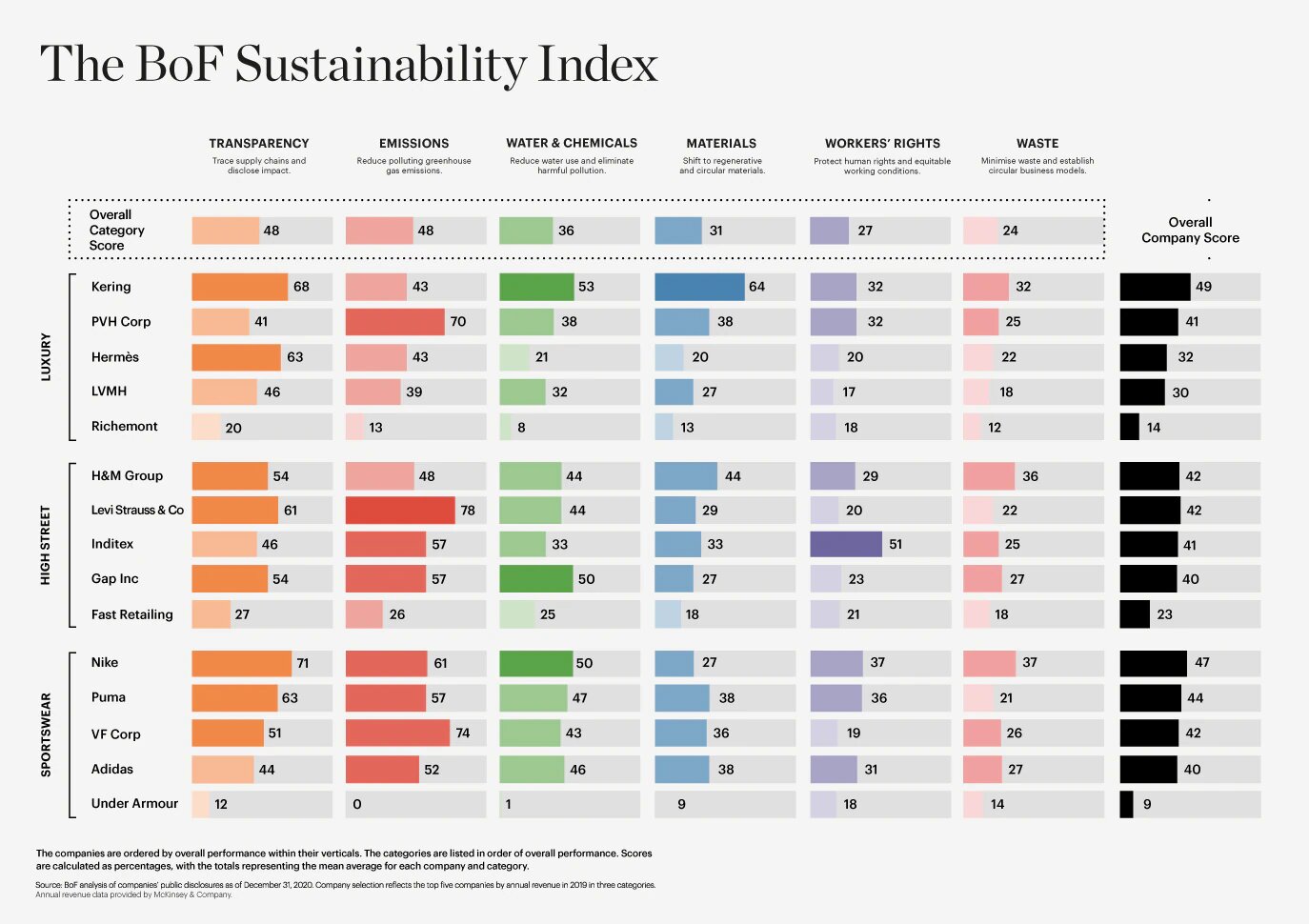The pressure is mounting for the fashion industry to meet global ambitions to curb climate change. With a ten-year time frame, the race is on to establish more responsible business practices by 2030. However, a recent BoF report finds many fashion companies have yet to gain momentum, uncovering widespread inaction.

It seems, in this contemporary milieu you can’t address fashion – one of the most resource-consuming industries – without focalising on the matter of sustainability.
Sustainable fashion is a progressive sector pervading the fashion industry. Irrespective of its considerable prominence, according to a new report from The Business of Fashion – progression is lagging, with the largest and most resourced companies making no discernible effect toward sustainability commitments.
The Sustainability Gap

The inaugural BoF Sustainability Index 2022 follows the progression of fashion towards its sustainability ambitions. The report adopts a standardised method to benchmark the performance of 30 “leading brands” by revenue in three distinct fashion industry domains – luxury, high street and sportswear.
“The BoF Sustainability Index – aims to offer a transparent and trusted benchmark to track clearly defined, measurable progress.”
This is further analysed across six categories: Transparency, Emissions, Water & Chemicals, Waste, Materials and Workers’ rights. Which, as the report reveals – a number of companies are only just beginning to address.
Worsening Performance

Key insights reveal that industry performance has worsened. The average score of these companies was a meagre 36 out of 100. Revealing the five weakest performers – URBN, Skechers, Fila Holdings, Anta and HLA Group – having scored less than 10 points.
Further, waste and workers’ rights were the lowest performing categories in the index with respective scores of 24 and 27. Chief Sustainability Correspondent affirming this sentiment;
“You’ve got some front-runners making small steps of progress but, fundamentally, the big picture is that the industry is wildly underperforming.” Reuters.
It seems, actions speak louder than words, as the fashion industry’s sustainability rhetoric surpasses the actions of its companies. Moreover, the results demonstrate a substantial sustainability gap, urging efficient change necessary in gearing the industry toward a more sustainable future.
In many ways, The BoF Sustainability Index can be considered a catalyst for setting new standards and goals in sustainability performance. The report succeeds in pinpointing several goals/facets in which urgent action is necessary. Additionally, the index functions as a framework for which both opportunity for resolution, future advancements and meaningful transformation can be made.
The Window is Closing
However, “with just eight years to reach targets” the results are grim in the face of achieving global sustainability ambitions.
Overall, the industry’s progress remains systemically opaque. With it being one of the most potent polluters, user of hazardous materials in an extractive business model. It also operates on systemic inequality and social injustice.
It appears that the industry is profiting a culture that breeds wasteful overconsumption. Thus, as the report affirms – everything is moving too slow for the consequences of such harms to be prevented.
The report proves vital for fashion creatives, business professionals, and entrepreneurs who can gain crucial insight on the state of fashion. It can be read here.
Additionally, on June 16 #BoFLIVE: A Crash Course on The BoF Sustainability Index 2022 will be held. BoF founder and editor-in-chief Imran Amed is joined by the report’s authors Sarah Kent and Dianna Lee to give the run-down on this years findings. Register for the event here.
Subscribe to FIB’s Weekly Breaking News Report for your weekly dose of music, fashion and pop culture news!







